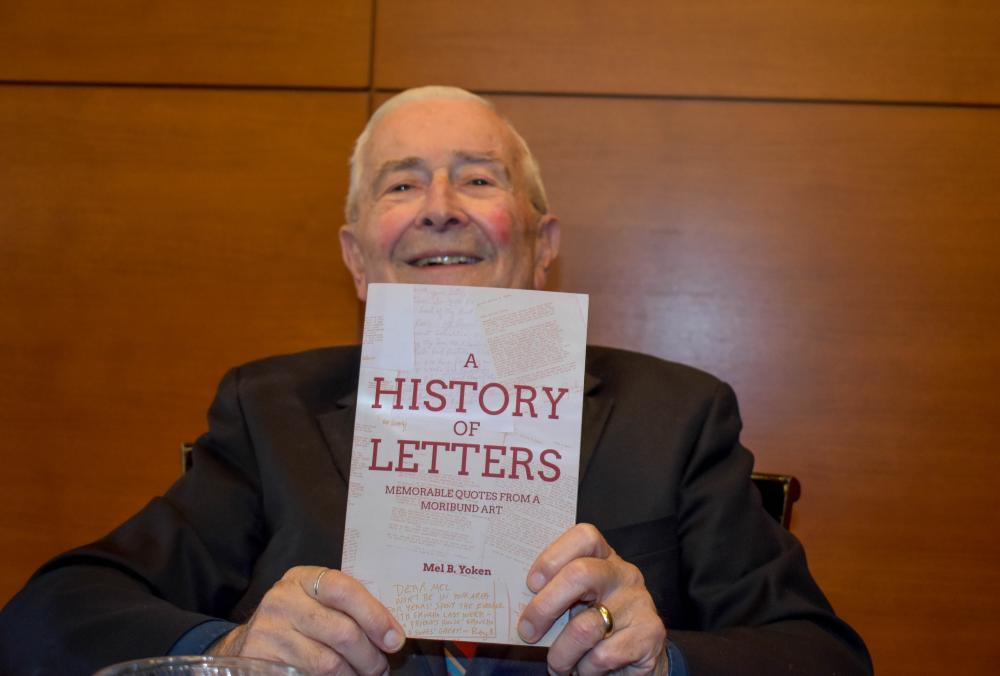In ninth book, UMass professor archives first-person histories of 20th century notables
To UMass Dartmouth French professor Mel Yoken, there are few things in life that compare to the beauty and personality of a hand-written letter.
“They just flow,” he said.
Over the years, Yoken estimates that he’s received around 400,000 letters — a little more than 140 of which are featured in his ninth published book “A History of Letters: Memorable Quotes from a Moribund Art.”
The book contains hand-written letters and electronic correspondence from various authors, politicians, and luminaries from the United States, Quebec, and France (along with others near and dear to Yoken’s heart).
According to Yoken, this passion took off while he was a graduate student at Brown University in the 1960s. He said that in addition to asking his professors questions about the readings, he would write to the authors he was studying in order to get some clarification on their works.
In return, he said he would receive “copious letters” from those French authors he studied.
“[They’d be] 10, 12, 15 pages at least,” Yoken said.
Additionally, he would begin writing to authors and professors he met at conventions, many of whom he developed lifelong friendships with.
What Yoken said he appreciates the most about the letters is how earnest people tend to be when they write.
“People confess,” he said. “They bring joy, they bring consolation.”
One standout feature in the book involves correspondences with Dave Garroway, the founding host of NBC’s “Today Show” — someone who always made Yoken laugh.
The professor said one day he was sick at home watching television, when Garroway came on, instantly brightening Yoken’s spirit.
Yoken said his parents always told him to thank those who provided help, even through television. With that upbringing in mind, he wrote a letter in the span of a minute and sent it out.
Two weeks later, Yoken received a 14-page letter from Garroway “detailing everything about his life.”
“It was extraordinary,” he said. “[He wrote] about his psychiatric problems, his marital problems — about everything.”
Three months after that, out of the blue, Garroway sent a two-page letter, just two weeks before he would die by suicide.
“He really fell to the bottom of the sewer. We thought of him as [doing] great, but inside, he was extremely depressed,” Yoken said of Garroway.
In a more upbeat correspondence, Yoken includes a letter he received in 1979 from Abram Sachar, the founding president of Brandeis University.
In it, Sachar congratulates Yoken on the birth of his second son, David. Additionally, Sachar wrote “if you are thinking about Brandeis, it is not too early to file an application for admission. This has become such a good school and university that applications should come in when the pregnancy test is positive.”
“And you know something, David did go to Brandeis,” Yoken said.
Though writing the letters was easy, trying to narrow down his top choices for the book was not.
Yoken noted that with so many letters received, it takes time and patience to narrow down which letters would be best for a general audience.
Thankfully, he could always go back into the archives for future publication.
“I must have material for another two, three, or four more books if I have the strength and energy,” he said with a smile.
“A History of Letters” is available at Barnes & Noble, Amazon, and MelYoken.com.












